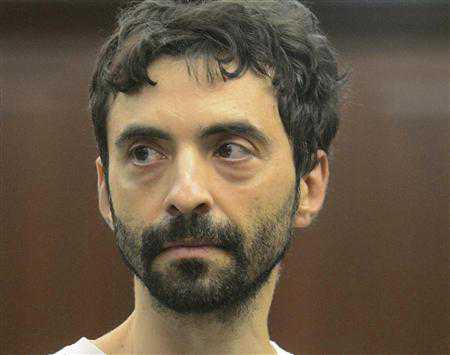Former Goldman Sachs programmer convicted of code theft

Photo by Reuters
On Friday, New York jury found 45-year-old programmer Sergei Aleinikov guilty of stealing a code belonging to Goldman Sach Bank. The jury could not decide on the second point of the charge - illegal copying, and Aleinikov was acquitted of it. As the court found, the programmer “stole” an unnamed amount of program code intended for high-frequency trading with the aim of transferring it to another trading company Teza Technologies, which is a competitor to Goldman Sach and which offered Aleinikov a job.
History is curious that Aleinikov already had similar problems with the law. Back in 2009, he hitat the FBI on a similar charge, but two years later he received a real prison term on a different charge: the US federal court in Manhattan found him guilty of transporting stolen property and economic espionage. Aleinikov received a substantial period of eight years, of which he managed to serve only 11 months. Aleinikov’s lawyers were able to get the appeal examined, and in the end, the judge found him not guilty, because the FBI agents “did not have enough reason to arrest the accused.”
As a result, it is not known how, but Aleinikov was again in the hands of the FBI on the same charge that was brought against him back in 2009. Aleinikov’s lawyer Kevin Marino previously told reporters that his client could pay a four-year sentence and would definitely pay a fine of $ 1.5 million. Now he says that the court’s verdict contradicts the principle that no one can be held responsible for the same crime.
Developers of high-frequency trading systems sign special non-disclosure documents with the consent that their Internet access will be limited and their telephone conversations will be tapped by security services. In addition, work with the program code itself is limited for them: a programmer can work only with that piece of code with which he directly works. Since the topic provides for the implementation of complex algorithms, court hearings on such issues are often held behind closed doors without journalists, so that inadvertently some features of the system do not become public.
Courts in the United States are very sensitive to the collection of evidence, especially for IT crimes. Some time ago, a federal judge refused to admit several points of charges in the case, evidence for which was collected during the time when agents of the white-collar department, disguised as cable men, entered the hotel’s hotel room, having previously disconnected the Internet there.
